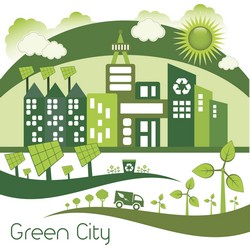Integrated tools to better transition to more liveable cities
Over half of all people worldwide live in cities, and this figure will surely rise. Yet, cities affect their residents and the broader environment, and thus a major planning challenge is transitioning to something less impacting while balancing all interests. The EU-funded TURAS (Transitioning towards urban resilience and sustainability) project worked with urban stakeholders to face sustainability challenges. Project partners developed, shared and tested novel ideas relating to building urban resilience. They created several planning tools, documented case studies involving urban green space experiments, and defined mechanisms for adaptive management. In total, 85 solutions were presented in 4 product categories – tools, integrated transition projects, pilots and place-based strategies. The focus was on climate change adaptation, migration, green infrastructure building and urban growth. Ten selected urban regions combined, adapted, implemented and tested TURAS tools. These included setting up an interactive arena to share resources among locals, use of smart energy and promotion of sustainable and resilient communities. For greener and less derelict cities, there were building nature-based solutions in challenging urban hot-spots, reutilising old buildings and incubators for peri-urban agriculture. The pilots are exemplary projects that were implemented in participating urban regions Europe-wide including Bulgaria, Spain, Germany, the Netherlands, Slovenia and United Kingdom. Projects covered a wide range of issues – from management and design of the riverside in Barking to discovery of community resources in Dublin, Ireland. Localised energy schemes, organic waste management and development of a Twitter dashboard to increase stakeholder collaboration on green infrastructure were just a few of the other initiatives. Practical analytical toolkits, process methodologies, community engagement tools and implementation guidelines help cities respond to a broad range of urban challenges. These include climate change adaptation through flood management and green infrastructure toolkits, and urban sprawl monitoring guidelines to deal with unprecedented urban growth. TURAS brought together a broad range of sustainable urban planning stakeholders in a very collaborative way. In doing so, such key actors will serve as catalysts by facilitating application of the resulting solutions in diverse urban and regional settings across Europe.







